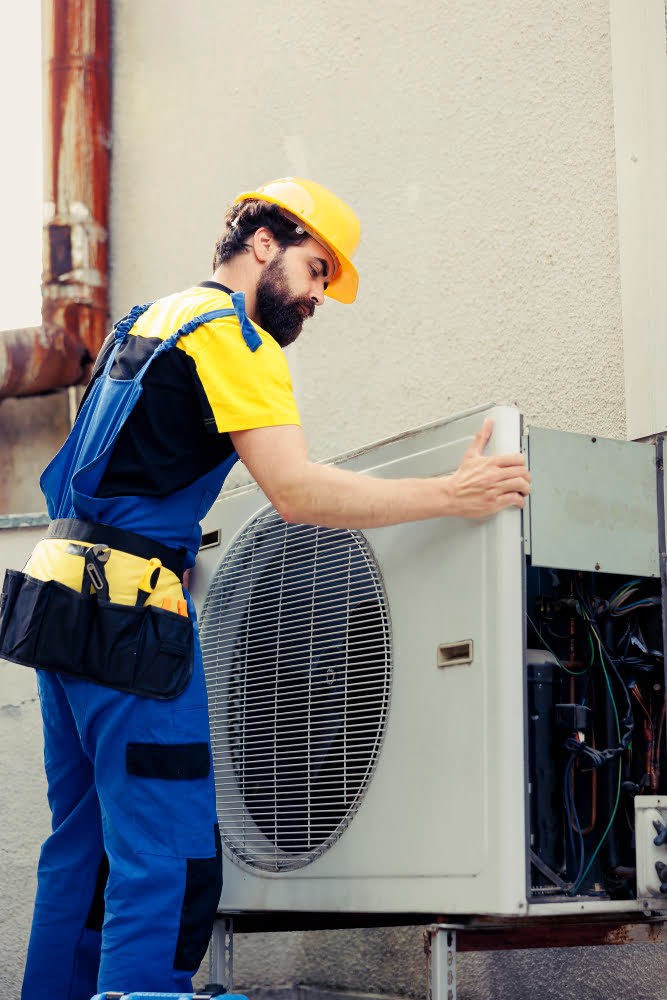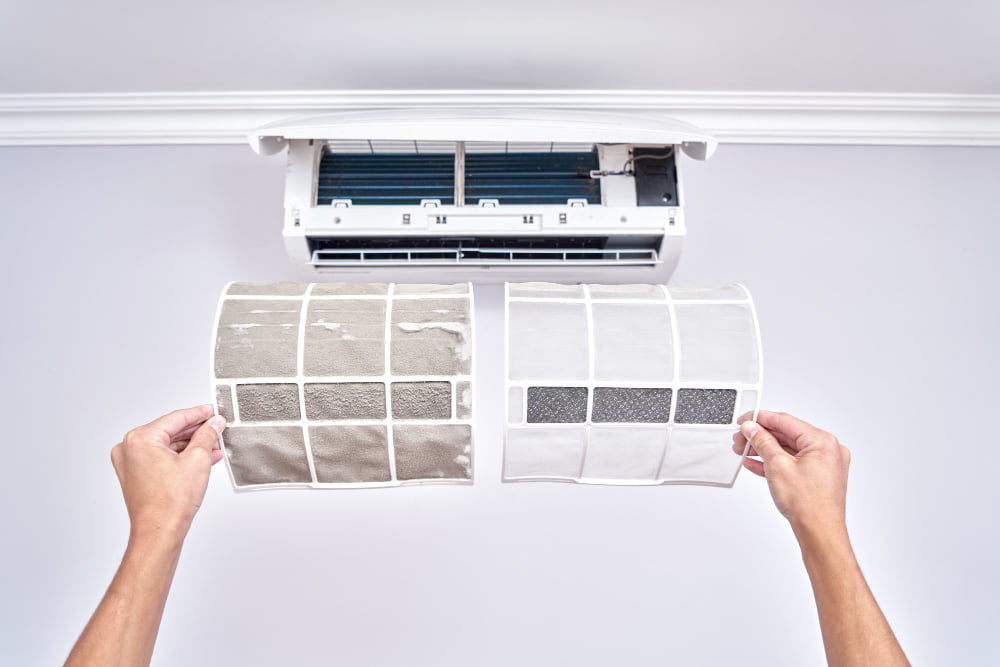Last updated on
Taking care of your heating, ventilation, and air conditioning (HVAC) system is vital to maintaining a comfortable living space. However, despite regular maintenance and upkeep, there may come a time when your HVAC system decides to call it quits unexpectedly. This can be a nightmare scenario, especially during extreme weather conditions. Your comfort and safety are at stake here.
But fear not! In this blog post, we will guide you through actionable steps to take when your HVAC system fails. From identifying the problem to finding reliable repair services and tips for preventing future breakdowns – we’ve got you covered with all the essential information to tackle any HVAC emergency like a pro. So sit back, relax, and let us help you navigate through this frustrating situation with ease.
When to Call in the Pros

As homeowners, we often take on the responsibility of fixing things around the house. However, there are times when certain repairs should be left to the professionals. It’s important to pay attention to warning signs that indicate a serious issue that requires professional intervention. For example, if you notice water stains on your ceiling, it could be a sign of a leaky roof, which can lead to costly damages.
Another warning sign that you need these experts is if your electrical outlets feel warm to the touch or emit a burning smell, as this could indicate an electrical issue that could lead to a fire hazard. Remember, it’s better to be safe than sorry when it comes to serious repairs in your home.
Common Signs of an HVAC System Failure
Your HVAC system is crucial in making sure that your home is comfortable and cozy all year round. However, it can be quite frustrating when it suddenly breaks down or fails to work as it should. One of the ways to avoid such an inconvenience is by being vigilant and identifying any warning signs of an HVAC system failure.
Unusual noises, inconsistent temperatures, and high energy bills are just some of the common signs that something is not quite right with your system. By addressing these issues early on, you can save yourself time, hassle, and money in potential repairs or replacements. Be sure to contact a professional HVAC technician if you notice any of these warning signs.
How to Troubleshoot Your HVAC System

When your HVAC system malfunctions, it’s always tempting to call in a professional. However, before you do that, there are a few simple things you can do to try and troubleshoot the issue on your own. One of the first things you should do is to check the air filter. A dirty air filter can cause your system to work less efficiently, so make sure to clean or replace it as necessary.
You should also check that all the vents in your house are open and unobstructed, as blocked vents can also limit airflow. Finally, check the thermostat settings to ensure they’re set correctly. By following these simple steps, you may be able to fix the issue yourself, saving you time and money.
Cost-effective Alternatives
Are you in need of a new HVAC system, but cringe at the thought of the high cost? Fear not, as there are cost-effective alternatives that can help keep your home comfortable year-round. One option is to consider upgrading specific components of your current system, such as the air filters or thermostat, rather than replacing the entire unit.
Additionally, routine maintenance and regular cleaning can extend the lifespan of your HVAC system and improve its efficiency. Another option is to explore the world of refurbished or used equipment, as they can offer significant cost savings without sacrificing performance. With these alternatives, you can keep your home cozy without breaking the bank.
Additional Tips for Maintaining Your HVAC
Taking good care of your HVAC system is essential for the comfort of your home and for saving energy costs. Besides regularly changing air filters, there are other tips to keep your system running efficiently and for a longer time. First, schedule professional maintenance at least once a year, especially before winter and summer when the system works the hardest.
Also, keep the outdoor unit clear of debris, such as leaves and branches. Lastly, consider upgrading to a programmable thermostat to control temperatures, which increases efficiency and avoids overworking the system. By following these additional tips, you can keep your HVAC system functioning at its best and protect your investment for years to come.
The Takeaway
A functional HVAC system is not only crucial for maintaining comfortable temperatures in our homes, but it also plays a significant role in preserving its value. By being aware of the common signs of an HVAC system failure and following our step-by-step troubleshooting guide, you can easily avoid costly repairs and extend the lifespan of your system.
Remember to regularly check for power supply issues, clean or replace air filters, inspect the outdoor unit for debris, and test thermostat settings and battery life.
However, if you encounter warning signs that indicate a serious issue, it’s best to call in the professionals to handle the situation. Don’t fret about expensive replacements either; there are cost-effective alternatives available. And finally, never underestimate the importance of routine maintenance checks and addressing any issues promptly.
By doing so, not only will you save money in the long run but also ensure your home remains comfortable year-round. So take care of your HVAC system –after all, it’s an investment worth protecting! Take action now and schedule that much-needed maintenance appointment before it’s too late!
Recap:



